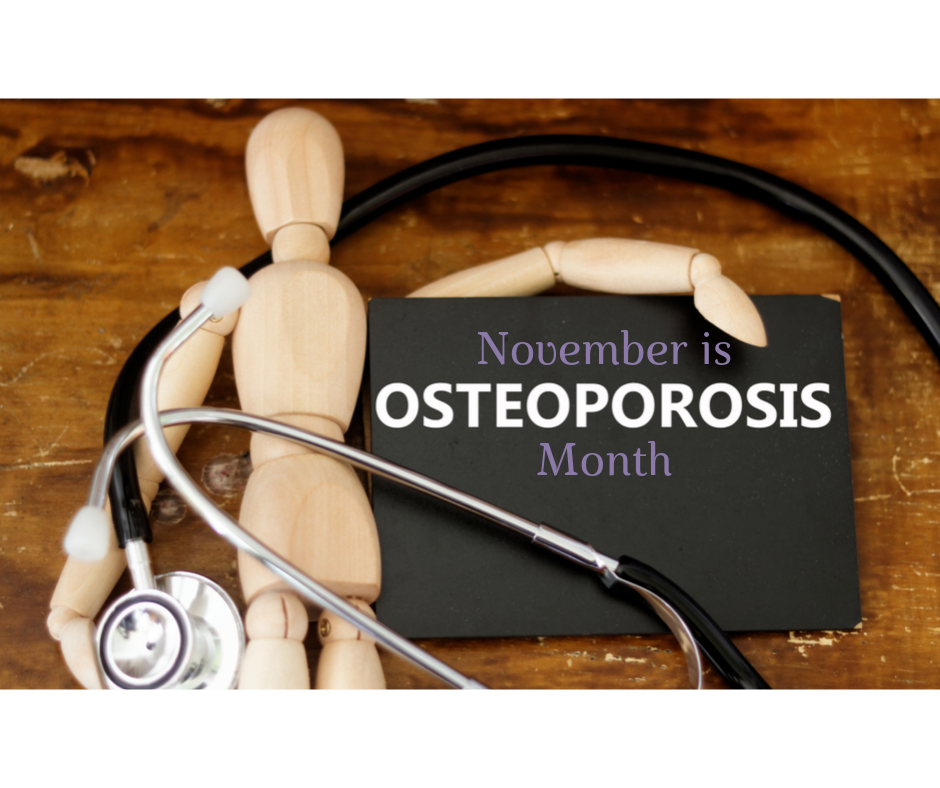What is Osteoporosis?
Osteoporosis is a disease in which individual's present low bone mass and their bone tissue deteriorates. Ultimately, this increases the risk of fractures to the bones, with the most common being hip, spine, wrist, and shoulder.
Who is Affected?
Canadians are most often affected over the age of 50, however osteoporosis can affect anyone. Approximately two million Canadians are diagnosed with osteoporosis. 1 in 3 women and 1 in 5 men will experience a fracture due to their osteoporosis.
What Treatment is Available?
There is currently no cure for osteoporosis but treatment options are available to help reduce the loss of bone mass and the risk of fractures. The treatment options that exist are typically medications and individuals can speak to their doctors about finding what will work best for them.
Another important role in the treatment process is to maintain a healthy level of vitamin D and calcium within your diet. This will help to maintain healthy bones and should be done proactively throughout your life to reduce the risk of osteoporosis.
How can you Support People with Osteoporosis?
Be a person of support for a loved one with osteoporosis. Many individuals do not know they have osteoporosis because it is quite asymptomatic prior to a fracture. Be a source of encouragement for your loved one and support them if they experience a fracture. Encourage them to eat a healthy diet rich in Vitamin D and Calcium, and do so yourself. Participate in activities together that are safe for both of you. Join a support group if you are seeking more help or advice from others or need someone to lean on. There are many resources available through Osteoporosis Canada.
Osteoporosis and Dementia
Research has found that osteoporosis and dementia are more prevalent in women. As such, it is important to stay informed of the risk of osteoporosis. If you are a care partner of a person living with dementia, ensure they continue getting the right nutrients. If you begin to think their bones are not as strong as they used to be or have experienced a fracture, it's important to speak with your doctor to have them tested for osteoporosis. Stay aware, informed, and know the risks involved. This will help to make the transition easier and to maintain your loved one's overall health.
What do you do to support people living with osteoporosis? Share with us in the comments below!
References
Osteoporosis Canada (2019). What is osteoporosis? Retrieved from https://osteoporosis.ca/about-the-disease/what-is-osteoporosis/
Osteoporosis Canada (2019). Treatment. Retrieved from https://osteoporosis.ca/about-the-disease/treatment/


